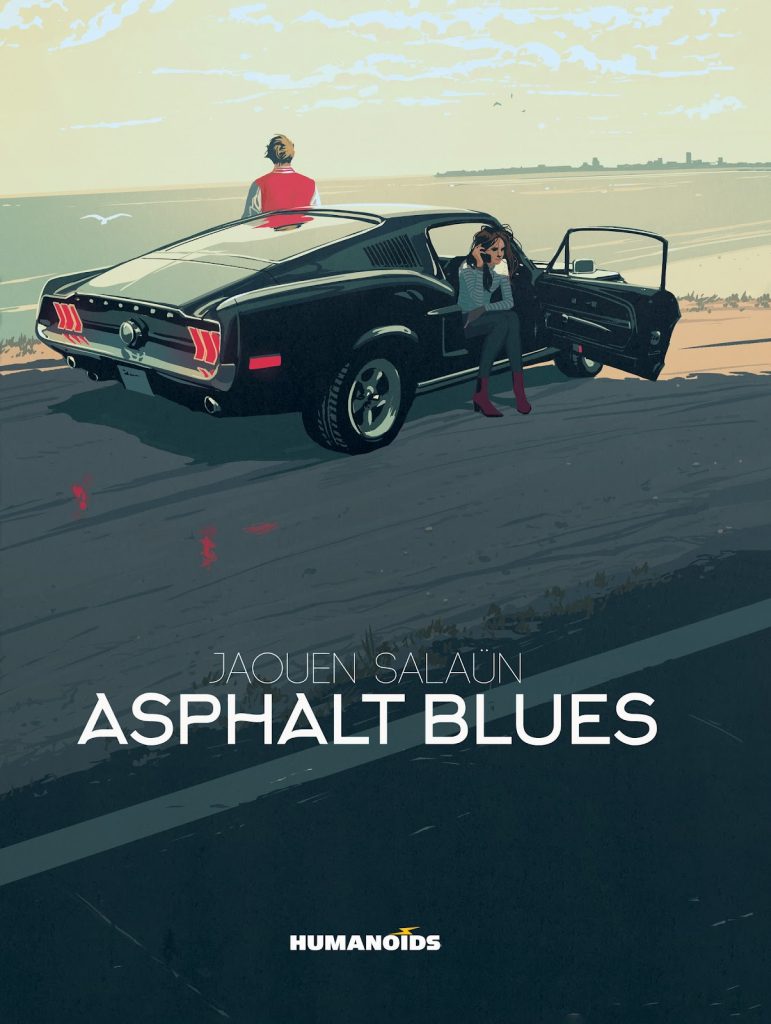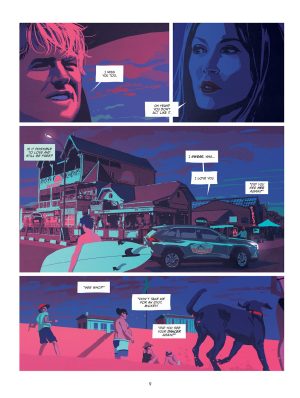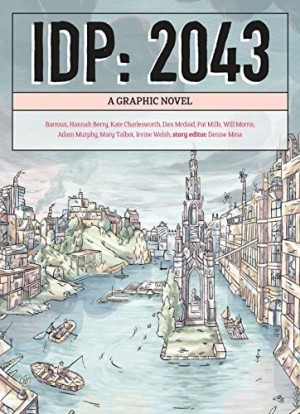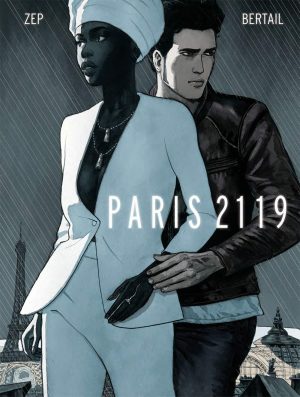Review by Ian Keogh
As a child Mickey was taken from his parents and fostered, and his narrative is that having all decisions made for him as a child has led to an adult lack of commitment. His primary concern is his own freedom, maintained at the cost of deceiving people who care for him. However, there’s an also a self-awareness about his selfishness. He’s a good looking lad with a flash car and that goes a long way.
Over the first quarter Asphalt Blues spends a lot of time with Mickey and his car, as he journeys from one girlfriend to another, disappointing both. What he’s losing is pointed out to him, yet he departs somehow considering it a victory. He’s as shallow as that, which is well conveyed, but that portion of Asphalt Blues takes too long to say anything, and seems more an exercise for Jaouen Salaün testing the possibilities of his digital art package. Colours are vivid and varied, while pictures are shopped in and altered for both people and backgrounds. It looks attractive, but says nothing.
The remainder is better, taking place fifteen years later. There’s no doubt of the near future now, with anomalous devices and the dividing line between the interests of the state and of the corporations is thin. Salaün’s focus is on one of those corporations, behaving with as little social concern as they do today, but with greater sanction. Lip service is paid to ecological worries while the old profitable ways continue, and litigation and bribery ensure any opposition is ineffective unless they resort to direct action, at which point the old line about terrorism can be used.
Characters from the story’s opening chapter are seen again, but not in a context that requires that chapter’s presence, but there’s a disconnect throughout, not just between the cast, and people and their jobs, but between Salaün and his audience. He never really nails what he wants his story to be about, so it flits from the personal to the action thriller items, but held together by the stately art. Yet that also has its failings, glorious when it comes to locations and attractive people having conversations, but lacking when it comes to conveying the emotional intensity of those conversations.
In writing terms the finest achievement is taking two characters toward what’s an open-ended final page where the audience can decide how much of their commitment is valid. It’s the one justification for Asphalt Blues’ out of place first quarter, but the same result could have been achieved far more convincingly. For some people the art will be enough, though.




